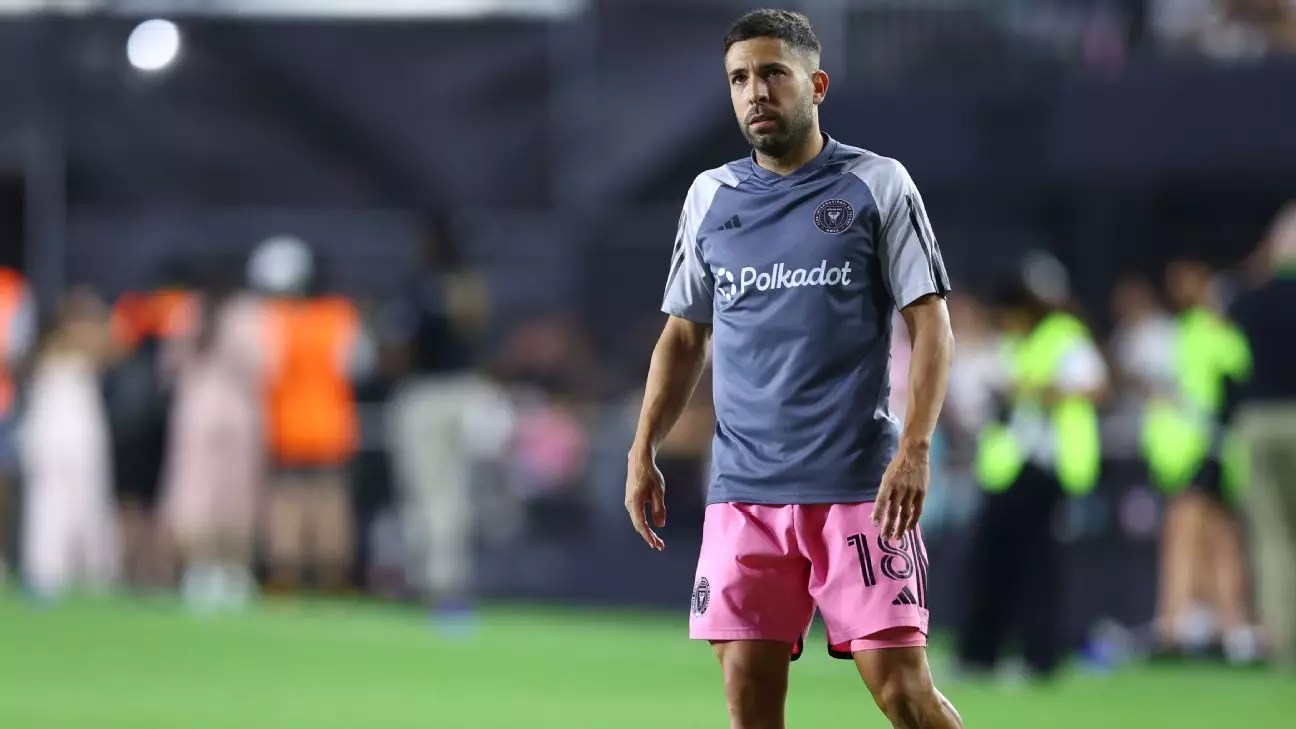Major League Soccer’s (MLS) playoff structure has come under intense scrutiny following Inter Miami’s recent exit from the postseason. The team’s veteran defender, Jordi Alba, did not hold back in expressing his dissatisfaction with the current format, labeling it “unfair.” This commentary came after Inter Miami faced Atlanta United in a thrilling third match of their best-of-three playoff series, ultimately falling 3-2 at Chase Stadium. As this was Alba’s inaugural postseason in MLS, his comments carry significant weight, especially considering the club’s aspirations for a deeper playoff run.
Reflecting on the 2024 season, Alba acknowledged the team’s overall performance but emphasized a stronger desire for playoff success. “It was a good season, but what we wanted was to win this more,” he stated, implying that individual match victories were overshadowed by the ultimate goal of securing a championship. Contrary to perceptions of a successful campaign, Alba argued for a more equitable playoff system, suggesting that the champions of each conference should face off directly instead of navigating through a complex series format. His perspective highlights a growing sentiment among players who believe the existing structure may undermine the competitiveness of the league.
The 2024 MLS playoff format is designed to escalate tension by featuring best-of-three series before shifting to knockout rounds for subsequent stages. While this format serves to heighten drama and engagement for fans, it has its drawbacks. For a team like Inter Miami, who finished the regular season first and secured home-field advantage after winning the Supporters’ Shield, the abrupt exit can feel disheartening, particularly when compared to the traditional playoff formats seen across other leagues. Alba’s contention that the format has remained unchanged for years raises questions about whether it adequately reflects the evolving dynamics of competitive soccer.
In the decisive match against Atlanta, the statistics suggested a dominant performance from Inter Miami, spearheaded by superstars such as Lionel Messi. However, coach Gerardo Martino and Alba both recognized the reality that controlling the game doesn’t always translate to victory. “Today, I think we have been superior; we have dominated,” Alba remarked. Yet, the cruelty of football was evident as Atlanta capitalized on limited opportunities, scoring three goals on just four shots on target. This discrepancy encapsulates a harsh truth in sports: superior possession and statistics do not guarantee success. It illustrates the volatility inherent in knockout competitions where a few critical moments can determine outcomes.
Martino’s post-match comments further contextualized the season’s events. He refrained from labeling the campaign a success despite the club’s accomplishments, highlighting that elimination in the quarterfinals was a bitter pill to swallow. He pointed to progress from the previous year but acknowledged an undercurrent of unfulfilled expectations that had accompanied their playoff journey. For a team with ambitions tied to high-profile signings and public interest, falling short in the playoffs becomes a pivotal moment of reflection. “If you think about the expectations we had for these playoffs, obviously we have fallen short,” Martino noted, paving the way for a critical reassessment of tactics and player performance going into the offseason.
As Inter Miami transitions into the offseason, the focus pivots toward enhancing their roster for the upcoming 2025 campaign. The introspective nature of this period will call for strategic decisions about player acquisitions and exits, particularly as the team seeks to translate its high expectations into tangible on-field success. While the league and its playoff structure may evolve, the foundational elements of teamwork, strategy, and execution must be further refined if Inter Miami hopes to escape the specter of disappointment that loomed heavy this past postseason. The challenge ahead lies in balancing high-ambition goals with practical adjustments, ensuring that the lessons learned from this season propel the team forward into a promising future.


Leave a Reply